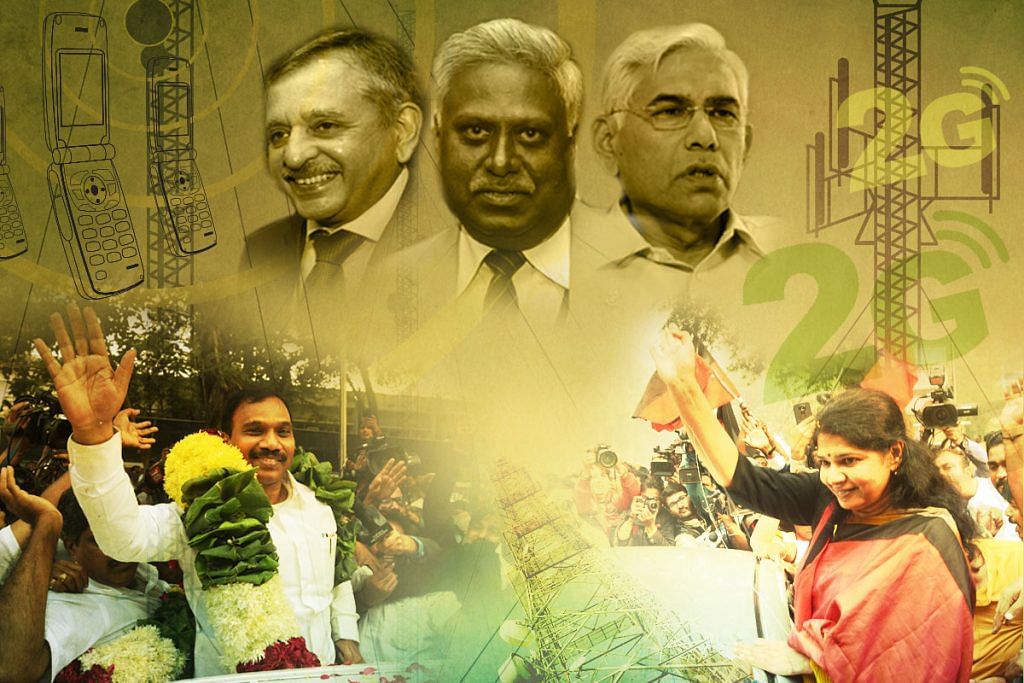The ruling may deliver an even bigger loss of credibility because it shows everyone, from the ministry down to the auditor and investigator, in poor light.
The political import of the 2G ruling has overshadowed the severe indictment of the Indian bureaucracy in this case; of how it failed institutions, misrepresented, confused and twisted facts to its convenience, and when the time came, showed little or no sense of collective responsibility.
At one level, you do feel for someone like H.C. Gupta, pronounced guilty by way of criminal conspiracy in the coal block allocation case for taking calls as the then Coal Secretary, which many argued were at the most an ‘administrative oversight’. But the 2G case showed us the other side of Indian bureaucracy.
Let’s sit back and examine – the secretary of the administrative ministry, in this case telecom, is a bureaucrat; the regulator (TRAI) is headed by a bureaucrat, also an ex-telecom secretary; the auditor who gives it the highest billing as a scam is also an IAS officer, who had just served out as secretary, financial services, in the Finance Ministry.
The investigators – the Central Bureau of Investigation and the Enforcement Directorate – are also headed by bureaucrats, though from a different service.
Together, the ministry, the regulator, the auditor and the investigator, ended up creating one big mess in which no recoveries were made, no one was found guilty, and the astronomical amounts of money that made their way into public consciousness are, to say the least, still unverified.
On the other hand, in these past seven to eight years, a growing sector saw a severe setback, jobs were lost, and India’s growth suffered a credibility jolt.
Worse, the recent ruling may end up delivering an even bigger loss of credibility because it shows all these institutions, from the ministry down to the auditor and investigator, in poor light.
This would scare any foreign investor. Until now, majority complaints over ease of doing business were on the unpredictability emerging from red tape, and a slow judicial system. Add to that the shortcomings of an enlightened, informed, more reformist bureaucracy, and you have a big cause for worry.
A closer reading of the ruling points to consistent ambiguity maintained by all actors in their language and use of jargon. The battle between the regulator Nripendra Misra and telecom secretary D.S. Mathur is recorded in full. At the end of the day, it was a successor-predecessor battle where Misra comes out looking better, though with little support from others.
This bares a big challenge for the government, of how things can go terribly wrong if the regulator and the administrative ministry are unable to strike the right balance. No one wants ‘regulator raj’ instead of the old ‘licence raj’, but at the same time, regulator oversight is critical to ensuring that rules of fair play don’t give way to cronyism.
This delicate balance is what builds the correct institutional framework for a sector expand and sustain beyond its initial growth phase.
The auditor has a very important institutional role in providing a different kind of oversight, which while keeping a check on the robustness of the system, also bares anomalies that should be looked into and investigated more deeply where necessary.
But what should be clear, at all times, is that the auditor, the policy-maker and the policy regulator cannot possibly interoperate. Because if they do, it will result in mayhem like what happened with the 2G auction.
Now, what was their wrongdoing? Well, that’s where investigating agencies must inspire confidence. While this case may move into appeal, it would be fair to conclude that the investigators have put up a poor show, unable to stitch together convincing evidence to nail a single case, or even a trail.
For all that was claimed, the investigative agencies should have at least been able to close all ends or points of doubt. Instead, what one gets is a tale of trails running cold, mostly once they move offshore, beyond the country’s sovereign limits.
That’s even worse. Because regardless of court rulings – whether they exonerate or pronounce you guilty – in cases such as these, the conspiracy will live on, doing more harm than good in the long run.
Which is why the declining track record of our investigative agencies, worsened by their susceptibility to political manipulation, is a big deterrence on foreign investors – a drag on building India’s economic profile.
The way the 2G case has gone so far, it appears to be turning into a monumental example of systemic failure – one effected by the very keepers of the system, the bureaucrats.
